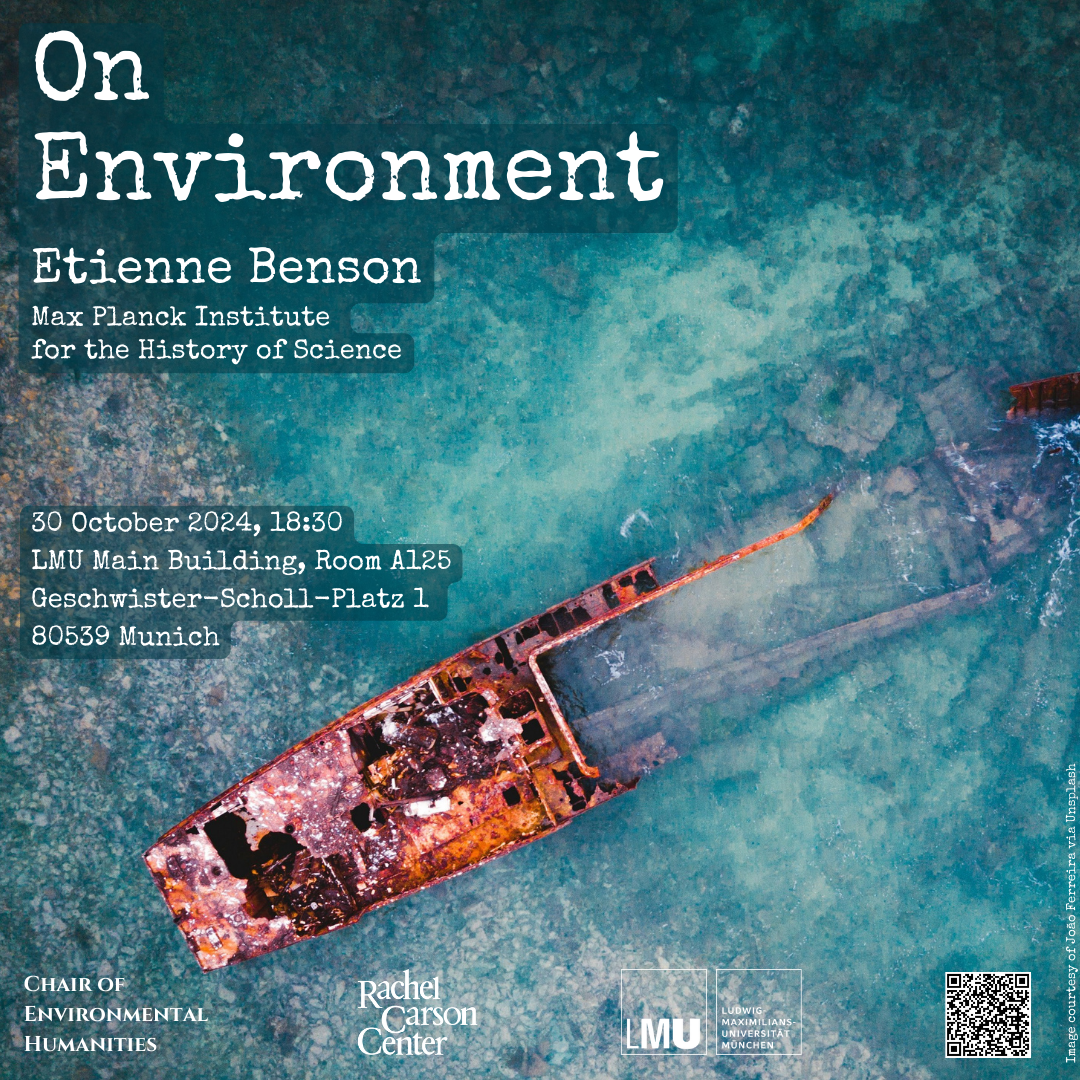On Environment with Etienne Benson: “Dust Bowl Liberalism ‘Swing to the Quantitative’ in the Earth Sciences, 1933–63”
Lecture Series
30.10.2024 at 18:30
Location: A125, LMU Main Building, Geschwister-Scholl-Platz 1, 80539 Munich
This lecture will be given by Etienne Benson (Max Planck Institute for the History of Science, Berlin).
Abstract
In the 1920s, scientists and conservationists in the United States generally agreed that the arid landscapes of New Mexico, Arizona, and other parts of the Southwest had been eroding at an accelerating pace since the late-nineteenth century, with potentially catastrophic consequences for agriculture. But explanations for the erosion crisis differed widely. On one side were progressive foresters and conservationists such as Aldo Leopold, who argued that poor farming practices and overgrazing were to blame. On the other side were geologists such as Kirk Bryan, who argued that climatic change—driven by natural cycles, not by human activities—was the primary culprit. At stake in this disagreement was not only a scientific question about the causes of environmental change but also a political and ethical question about human responsibility. In this talk, Etienne Benson argues that the dual crises of the Dust Bowl and the Great Depression—and the way science was mobilized to meet them under the New Deal programs of Franklin Delano Roosevelt—shifted the political and epistemic grounds for the debate, changing the way scientists in the United States sought to quantify and allocate responsibility for catastrophic environmental change. These developments in the crisis-ridden decade of the 1930s shaped the post-war relationship between science and conservation policy, including efforts to grapple with the emerging issue of anthropogenic climate change.
This event is part of the lecture series “On Environment.” The series is organized by the Chair of Environmental Humanities at the Rachel Carson Center for Environment and Society.
Environment is a broad conceptual idea with a history and many meanings. Today, the term is used ubiquitously. We are closely connected to what surrounds us and live in an environment more and less shaped by humans. In this series of lectures scholars from different disciplines address the concept, providing a lens into what it may mean to think environmentally.


